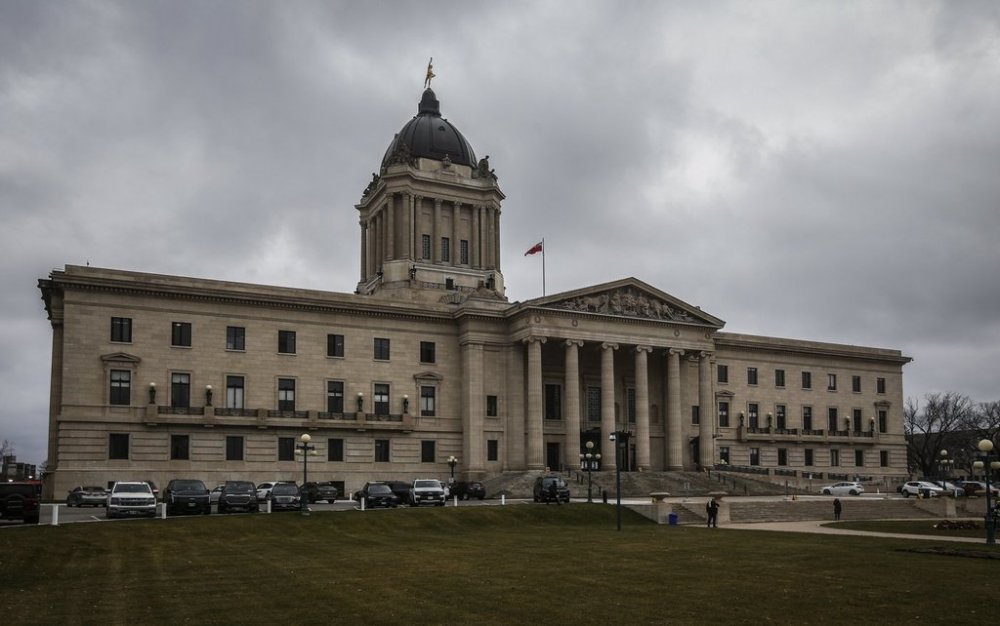Manitoba bill to extend drug detention faces deadline as Opposition pushes for change
Advertisement
Read this article for free:
or
Already have an account? Log in here »
To continue reading, please subscribe:
Monthly Digital Subscription
$0 for the first 4 weeks*
- Enjoy unlimited reading on winnipegfreepress.com
- Read the E-Edition, our digital replica newspaper
- Access News Break, our award-winning app
- Play interactive puzzles
*No charge for 4 weeks then price increases to the regular rate of $19.00 plus GST every four weeks. Offer available to new and qualified returning subscribers only. Cancel any time.
Monthly Digital Subscription
$4.75/week*
- Enjoy unlimited reading on winnipegfreepress.com
- Read the E-Edition, our digital replica newspaper
- Access News Break, our award-winning app
- Play interactive puzzles
*Billed as $19 plus GST every four weeks. Cancel any time.
To continue reading, please subscribe:
Add Free Press access to your Brandon Sun subscription for only an additional
$1 for the first 4 weeks*
*Your next subscription payment will increase by $1.00 and you will be charged $16.99 plus GST for four weeks. After four weeks, your payment will increase to $23.99 plus GST every four weeks.
Read unlimited articles for free today:
or
Already have an account? Log in here »
WINNIPEG – Manitoba’s Opposition Progressive Conservatives are calling for mandatory public consultations and buffer zones around the NDP government’s proposed detention centres for people intoxicated on long-lasting drugs such as methamphetamines.
A bill before the legislature would extend the maximum time someone can be involuntarily detained for being highly intoxicated to 72 hours from the current 24 hours.
The bill would require new “protective care centres” that include health-care oversight for stays longer than 24 hours, although details about the centre’s locations and operations are to be worked out later.

The Tories proposed amendments to the bill Tuesday that include ensuring any such centres are not within 500 metres of schools, child-care facilities or personal care homes.
“Some of those (intoxicated) people may be in a state,” said Jeff Bereza, the Tories’ addictions and homelessness critic.
“They could be harmful to themselves, but they could also be harmful to kids going to school (or) to daycares.”
The Tories also want to ban mobile overdose prevention vehicles and any supervised drug consumption sites from operating close to the new centres, to reduce the chance of nearby drug availability. They also want the bill changed to ensure that any protective care centres are subject to a 45-day public consultation period for area residents.
“Right now, there’s no way (people) can be heard,” Bereza said.
The NDP government said the Tory amendments are so broadly worded, they could force the closure of a long-running 24-hour alcohol detention centre, run by the non-profit Main Street Project in downtown Winnipeg.
“Basically, they’re saying to close down Main Street Project, which has been working for 25 years,” said Bernadette Smith, the minister for housing, addictions and homelessness.
“And it would essentially put people at risk that are under intoxication of alcohol.”
The government’s bill has been supported by some law enforcement agencies, municipal leaders and first responders as a necessary tool to address public safety. Premier Wab Kinew has said members of the public are fed up of seeing people on meth having fist fights with themselves on the street.
Smith did not appear open to the Tory amendments Tuesday, and she is hoping the NDP majority in the legislature will be able to pass the bill into law before the legislature session ends next week. If the bill does not pass by then, it could be pushed back by up to one year.
This report by The Canadian Press was first published Oct. 28, 2025.


